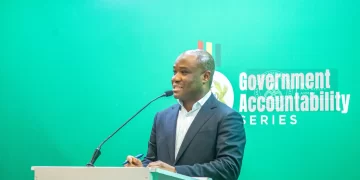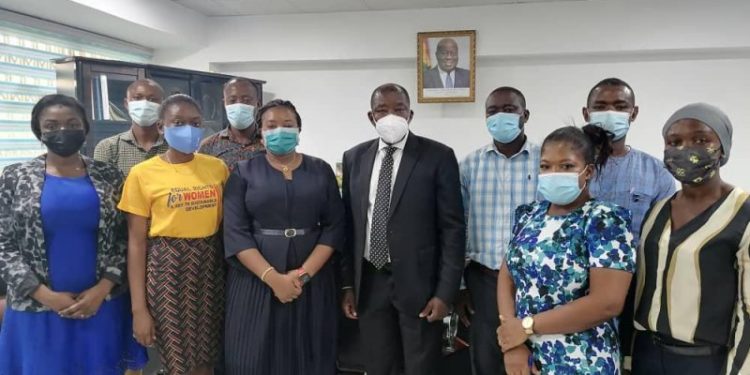Commissioner of Police Mr Isaac Ken Yeboah, Director-General Criminal Investigations Department (CID), Ghana Police Service, has expressed gratitude to the United States government for funding Ghana’s Case Tracking System (CTS).
COP Yeboah stated that the new technology would not only facilitate effective case management, but would also greatly expedite trial procedures.
He added that it will also assist in the successful communication and exchange of knowledge among security agencies.
The Director General of CID was speaking at a meeting with the USAID Ghana Justice Sector Support Activity’s implementing collaborators, who paid him a visit at his office in Accra.
The aim of the visit was to brief the CID chief on the USAID-funded Justice Sector Support activity and its prospects for improving justice delivery in the region.
He then promised the Ghana Police Service’s cooperation with civil society groups and civilians who will be tracking the CTS’s use.
Ms. Daphne Nabila Lariba, the Activity’s Chief of Party, shared optimism regarding the project’s effective execution.
In 2018, the country introduced the first consolidated Criminal Justice CTS, with funding from the government of the United States of America.
The Judicial Service, the Ministry of Justice and Attorney General’s Department, the Legal Aid Commission, the Economic and Organized Crime Office, the Ghana Police Service, and the Ghana Prisons Service all collaborated on the launch.
Ghana’s CTS fosters inter-agency coordination and intelligence exchange by developing an automated case management mechanism to assist the GOG in reviewing and prosecuting crime cases efficiently.
The CTS operates in seven areas, including Greater Accra, Ashanti, Northern, Bono, Upper East, Volta, and Western.
As a result, the Justice Sector Support Activity aims to expand Ghana’s Case Tracking System through community participation, empowerment, and acceleration of citizens’ concerns in order to demand transparency and enhanced justice delivery systems for Ghanaians.
The three-year activity, which began in August 2020, would assist civil society organizations in collaborating with justice sector institutions and the CTS to ascertain the need for changes to policies, procedures, and legislation that will facilitate improvements in justice delivery while educating citizens about the CTS and its utility, how cases are tracked and recorded, and how the CTS enables transcribed testimony.
SOURCE: ATLFMONLINE


























